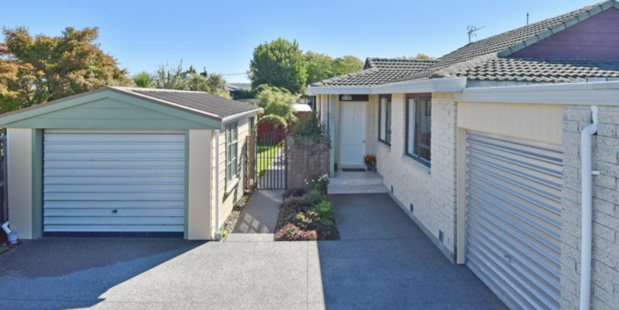PHOTO: Not all experts are tipping a drop in activity in the real estate market leading up to the election.
The rental crisis, housing affordability and supply will be among the hot topics in the real estate sector leading up to the Federal Election on May 21.
And while some experts are tipping we will see the traditional slowing in listing volumes and buyer activity, others expect little noticeable impact.
Property Investment Professionals of Australia (PIPA)
Today, PIPA called on the party that wins the Federal Election to immediately make the nation’s critical undersupply of rental properties a key policy.
According to CoreLogic analysis, investors comprised 32.6 per cent of mortgage demand by value in January 2022, up from a recent record low of 22.9 per cent, but below the decade average of 34.9 per cent.PIPA Chair Nicola McDougall said while investors made a return to the market last year, they had largely been absent in a number of years before that, which had reduced the number of available rental properties.
“The main reason why many investors did not purchase properties from 2017 is that nationwide lending restrictions prevented them from doing so,” Ms McDougall said.
“At the time, the restrictions were mainly because of the strong property price growth in Sydney during the mid-2010s, however, the instigation of fewer interest-only loans as well as higher interest rates on investment loans impacted investors around the nation.
“At the same time, asking rents were mainly benign, so the combination of higher mortgage costs together with flat-lining rents were also an impediment to the investor market.”
SQM research showed the national residential vacancy rate fell to a 16-year low of 1.2 per cent in February, while rents around the country are increasing.
“Even with our international borders mainly closed over the past year, Sydney’s vacancy rate hit two per cent in February this year with the asking rent for houses soaring by 17.1 per cent over the past year, according to SQM Research,” Ms McDougall said.
“It’s not enough for political parties to simply offer piecemeal funding for ‘affordable housing’ when there is currently a critical undersupply of rental properties that was written in the cards in 2017 when lending restrictions came into play.”
Ms McDougall called on the incoming government to develop a sustainable policy to increase the supply of rental properties, similar to the short-lived National Rental Affordability Scheme.
“With overseas migration set to soar over coming years, where are these new Aussies going to live if we don’t even have enough rental properties to house our current population?” Ms McDougall said.
“A system needs to be developed to encourage the private and public sectors to work collaboratively together to increase rental supply and to improve rental affordability for tenants.”
Real Estate Institute of Australia (REIA)
REIA President Hayden Groves said more needed to be done to address housing affordability and supply issues.
Speaking as part of the REIA’s new ‘Australian Property: Our Future’ campaign, Mr Groves said a national housing plan involving all three levels of government was needed to address the issues.
“In the recent Housing Inquiry Report, all three of REIA’s recommendations were taken into that report, which included axing stamp duty, greater opportunities for first home buyers, and also included increasing supply and housing in this country,” he said.
“We want greater prosperity through homeownership, we want strong small businesses, and we want thriving communities.”
Mr Groves said more also needed to be done to upskill the workforce to address the property manager shortage and tackle stamp duty reform, which could increase supply on the market by up to 40 per cent.
On a positive note, Mr Groves said buyers were bucking the traditional pre-election market slowdown, driven by bipartisan support for negative gearing and investor lending at record highs.
In the leadup to the 2019 Federal Election, Mr Groves said the REIA ran a campaign highlighting how changes to negative gearing and capital gains tax would seriously impact supply and affordability in the property market.
This time around, he said the “unprecedented” level of bipartisanship for negative gearing and a more stable and supportive tax environment, would give buyers peace of mind.
“Buyers are backing Australia’s housing market, with total investor loan commitments of $10.8 billion in February sitting just under the record loan commitments we saw in January 2022,” Mr Groves said.
“While it’s a very different market to the pre-election softening in the lead-up to the 2019 Federal Election, where uncertainty around negative gearing led to a major drop in investor confidence, rising stamp duty taxes continue to be prohibitive for owner occupiers.”
Mr Groves said the recent Federal Budget contained an expansion to the Home Guarantee Scheme, which supported first home buyers, and dealt directly with inflationary pressures, while containing modest outlook on interest rates.
“Home ownership is part of the Australian way of life, with the benefits of buying a home extending well beyond the individual,” he said.
“Home ownership is a long-term game that secures wealth for generations to come.
READ MORE VIA ELITE AGENT
MOST POPULAR IN NEW ZEALAND
 Melissa Caddick’s parents and husband face being HOMELESS | AUSTRALIA
Melissa Caddick’s parents and husband face being HOMELESS | AUSTRALIA ‘Unacceptable’: top real estate agents axed
‘Unacceptable’: top real estate agents axed Forbes Billionaires 2022: The Richest People In The World | WATCH
Forbes Billionaires 2022: The Richest People In The World | WATCH Abandoned land for sale
Abandoned land for sale Sales numbers down by a third | Barfoot & Thompson
Sales numbers down by a third | Barfoot & Thompson Property market slowdown: Some may ‘come unstuck’
Property market slowdown: Some may ‘come unstuck’ Simon Bridges’ Tauranga family home passed in at auction | WATCH
Simon Bridges’ Tauranga family home passed in at auction | WATCH ‘Less than $20 million won’t cut it’: The high-flying life of a Luxe Listings Sydney real estate agent
‘Less than $20 million won’t cut it’: The high-flying life of a Luxe Listings Sydney real estate agent Elderly owner of old brick house refused to sell to developers
Elderly owner of old brick house refused to sell to developers Inside Putin’s ‘secret’ daughter’s gaudy, $10K-per-month home in Russia
Inside Putin’s ‘secret’ daughter’s gaudy, $10K-per-month home in Russia



















